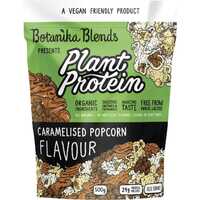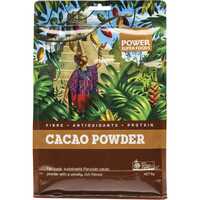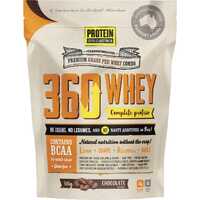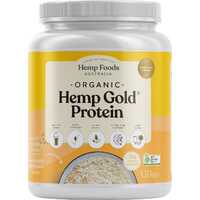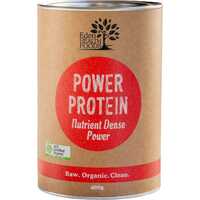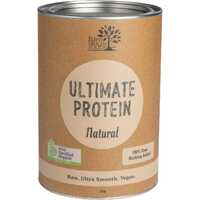Protein is an essential nutrient and basic component of living cells. Protein molecules are comprised of amino acids, with these basic compounds acting as building blocks for numerous biological activities. Protein is simple, flexible, and essential for life — and much of it comes from our food.
Among other things, protein helps to build muscle, generate connective tissue, and repair skin. It's essential for organ function, important for wound healing, and required for most metabolic processes in the body. Without protein, basic functions linked to blood pumping, breathing, digestion, and nervous system control would simply not be possible.
Let's take a detailed look at protein and review some simple ways to boost your protein intake. You don't have to eat lots of meat to get protein; plant foods and high-quality supplements are also available.
What are Amino Acids?
Amino acids are simple organic compounds made from carbon, hydrogen, oxygen, and nitrogen, among other elements. While roughly 500 amino acids exist in the wild, there are only 20-22 (depending on how they're defined) in the genetic code. All life on Earth is based on these compounds, which combine in various ways to fuel and fix the human body.
Amino acids include two major groups: essential amino acids, and nonessential amino acids.
- Essential amino acids can't be made by the body, so they need to be consumed from food. There are just nine essential amino acids: histidine, isoleucine, leucine, lysine, methionine, phenylalanine, threonine, tryptophan, and valine.
- Nonessential amino acids can be made by the body or consumed in food. They include alanine, arginine, asparagine, aspartic acid, cysteine, glutamic acid, glutamine, glycine, proline, serine, and tyrosine.
These two groups are often augmented with a conditional amino acid category. They are non-essential under normal conditions but made essential in times of stress. Conditional amino acids include arginine, cysteine, glutamine, tyrosine, glycine, ornithine, proline, and serine.
We can only produce just over half the amino acids we need to survive. While this seems problematic, our necessary reliance on the world actually reduces our energy expenditure. Choosing the right foods is integral to this process, from nuts and seeds to powders and supplements. Protein products can be determined for quality by assessing amino acid composition, digestibility, and bioavailability. While composition speaks for itself, digestibility refers to how protein is utilised, and bioavailability refers to how well it can be used.
What is Protein Bioavailability?
The bioavailability of protein describes how well your body absorbs and uses amino acids. Not all protein is created equal, in terms of both amino acid quantities and amino acid utilisation. While essential amino acids are called "complete" or "whole" for a reason, incomplete proteins also have a role to play.
Many ancient grains are extremely high in readily available incomplete proteins, as are egg whites, seafood, and whey protein powder. Meat products are typically more complete and bioavailable than plant proteins, but plant foods can be selected and mixed to provide a complete source of protein. This is good news for vegetarians and a great reminder for everyone to diversify their protein intake.
Consuming Protein as a Vegetarian or Vegan
Whatever type of diet you enjoy, protein is needed to live a long and healthy life. Protein sources differ widely when it comes to amino acid composition and bioavailability, however, and these issues are especially important for vegetarians and vegans. To make things easier, scientists have established a system that measures the essential amino acid profile of foods alongside their digestibility — the Digestible Indispensable Amino Acid Score (DIAAS).
Plant-based proteins usually lack at least one of the nine essential amino acids. For example, beans don't contain the amino acid methionine, and nuts don't have enough lysine. While it's perfectly possible to get enough protein on a vegetarian or vegan diet, extra energy is needed to cover all amino acids and ensure healthy protein intake. Non-meat eaters should consume lots of nuts, seeds, beans, and legumes; with protein powders, bars, balls, and supplements also beneficial.
While not related to protein directly, vegans should be aware of the following fact. Vitamin B12 is only found in animal-based products, fortified foods, and certain types of seaweed (in limited amounts). Anyone following a strict vegan regime should always supplement their diet with a vegan-friendly vitamin B12 supplement.
Common Sources of Protein
As one of just three macronutrients, along with fat and carbohydrates, protein is a central pillar of human health. There are lots of ways to incorporate protein into your diet, from meat and seafood products to dairy, nuts, seeds, and grains. Many of these sources are derived from animals, with healthy protein consumption a little harder for vegetarians and vegans. Let's take a look at common sources of protein, from traditional animal-based products to powerful protein powders.
Meat and fish
For many people, meat products are the single biggest source of protein. While protein is incredibly versatile and found in many foods, it shares a close association with meat for a very good reason. Beef, lamb, and other red meats are some of the best sources of protein on the planet, as they contain all essential amino acids while also being bioavailable. Red meat is also an excellent source of zinc, selenium, iron, and B vitamins.
Poultry and seafood products also have lots of protein, including chicken, turkey, and lean fish. Fatty fish should not be discounted, however, with salmon, sardines, and mackerel a great source of healthy omega-3 fats, vitamin D, and vitamin B.
Dairy and eggs
Dairy products perform well on the DIAAS scale, and they're also rich in calcium, potassium, phosphorus, and various vitamins. Cottage cheese and Greek yoghurt are especially high in protein, and many cheese products are also beneficial. Eggs are another source of highly efficient and readily available amino acids, most of which are found in the egg white. While the yolk gets lots of love due to its high vitamin A and B content, egg whites are a popular addition to protein powders when making smoothies.
Nuts, seeds, pulses, and beans
From nuts and seeds to pulses and beans, there are lots of great plant-based proteins on the market. Many nuts and seeds contain high levels of protein, with popular examples including peanuts, pecans, hazelnuts, walnuts, and cashews. While nuts and seeds don't have all the essential amino acids, they do have lots of healthy fats, magnesium, potassium, zinc, and B vitamins.
When it comes to pulses and beans, great examples include chickpeas, kidney beans, green peas, black beans, butter beans, and lentils. All of these foods are great, especially when you mix things up to get a well-rounded selection. Much like nuts and seeds, individual beans and pulses don't have all the essential amino acids, but they contain lots of fibre, folate, iron, magnesium, and potassium.
Tofu deserves special mention. This soybean-derived product is one of few plant-based proteins with all the essential amino acids. While the protein in tofu is not as easily-digestible as the protein in meat, fish, eggs, and dairy, it can play an important role in every vegetarian diet. Tofu also contains lots of beneficial minerals, including iron, zinc, potassium, selenium, and magnesium.
Protein powders and products
Consuming specialised protein products, including powders, bars, and balls, is one of the most efficient ways to boost your protein intake. While it's always important to follow a balanced diet, concentrated protein products can give you a powerful lift. Ideal for bodybuilders, fitness enthusiasts, vegetarians, or anyone who lives a modern stressful lifestyle, these products can help you to live your best possible life. Along with buying powders to make your own healthy drinks and foods, protein is often added to bars, balls, and tablet supplements.
There are many types of protein powder on the market, including whey, almond, soy, rice, hemp, pea, and mixed protein. Whey protein, in particular, contains all essential amino acids and is widely used in sports nutrient products. Whey products have extremely fast physical absorption, which is why they're such a popular post-workout option. Muscles experience micro-tears during workouts, and whey powder is able to trigger protein synthesis and speed up recovery times.
There are some potential dangers associated with protein powders, however, so it's important to purchase high-quality products from a trusted source. Please take note of the following advice:
- Avoid products high in sugars or calories.
- Don't swap whole food sources for supplements.
- Non-organic powders may contain toxic ingredients.
- Milk-based powders may cause digestive issues.
If you're looking for a high-quality source of protein-rich powders, bars, balls, and supplements, Healthy Being has everything you require. We only deal with world-class brands and high-quality ingredients, and we have lots of organic, vegetarian, and vegan options ready to go. So check out our website today and enjoy free shipping options across Australia and worldwide delivery!
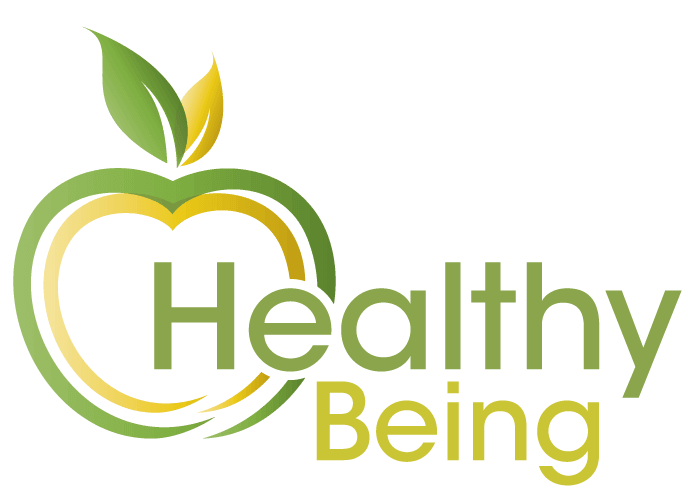

 Certified Organic
Certified Organic Vegan Friendly
Vegan Friendly  Vegetarian
Vegetarian Organic Ingredients
Organic Ingredients Dairy Free
Dairy Free Gluten Free
Gluten Free Keto Friendly
Keto Friendly





















